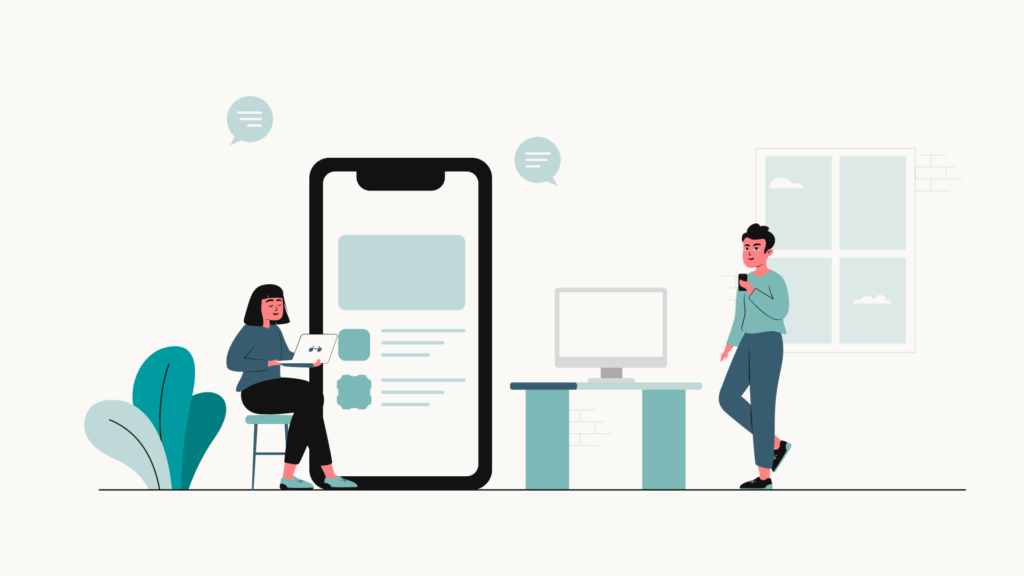Table of Contents

This era of digital transformation, largely fuelled by the global pandemic and the subsequent shift to remote and hybrid working arrangements, has made most of our everyday communication happen online. Not only has it changed the way we work and collaborate, but has also influenced the dynamics of workplace relationships. Be it small talk or extremely formal exchanges, we have been using our phones to communicate with our co-workers over text- many of whom we may never even have met in person or don’t meet frequently enough to develop a good rapport.
Miscommunication enters the chat
We all have developed different styles of texting over the years- we vary in our usage of language, emojis, punctuation and lingo. For instance, some of us use a lot of emojis and some of us don’t. But what if you unintentionally sound rude to the other person just because you skipped that exclamation mark? What if you come across as too formal in a supposedly casual conversation?
As convenient as text messages are for instantaneous communication, the absence of intonation and perspective, characteristic of in-person conversations, makes texting a tricky exercise. There are no facial cues or voice modulations to aid our interpretation of the words we exchange in our messages. This leaves plenty of room for misinterpretation, second guessing and confusion. It is not uncommon for passive aggressiveness to taint these conversations, intended or otherwise.
Communicating with a multigenerational workforce
Communication style is a true marker of generational differences. Millennials communicate differently from Gen Z and the latter communicates very differently from boomers. To add to the existing generational gaps in ideologies and frames of reference, now all this needs to happen predominantly through online channels! Here too, miscommunication always lurks around.
How can your keyboard help?
Out of the numerous tasks one has to navigate on a daily basis, worrying about the right tone or expression while messaging your colleagues shouldn’t have to be one. Wouldn’t it be wonderful if your smartphone keyboard could double as your sounding board and help you communicate more effectively? The data template has some compelling solutions to offer.

Consider a relatively stressful conversation with your manager, for instance. Communicating over text messages, as we have agreed by now, falls short when it comes to conveying nuances or complex matters, especially when things escalate. We may all have, at some point, backspaced a long message, thinking it wouldn’t make a difference, or even make things worse. Messages could overwhelm or induce anxiety, especially due to the lack of better cues of expressing oneself.
This is where Fleksy imagines a hyper contextual virtual keyboard that helps out users in highly stressful conversations, empowering users to quickly relax, while at it. The template detects stressful moments based on the user’s keystroke dynamics and word choices, perceptively prompting them to take a break or a round of breathing exercises while staying on the messaging app.

There could also be times when we tend to respond insensitively to a message or tactlessly type one out without second thoughts. It could be due to some pressure we are dealing with at a given moment or maybe just as an unfiltered response to a rude message we may have received ourselves. Regardless of the reasons, rash behavior comes with repercussions that are most likely intricate to fix. What if your keyboard could prevent you from sending hurtful messages? Software keyboards, in fact, can be enabled to act as a shield against potentially hurtful text communications across messaging apps and social networks. By detecting inappropriate words or usages and triggering a warning, the user is prompted to think once again before hitting send.
While these are just a few examples of the template’s capabilities in the context of work environments, the true potential of its applications is limitless in our personal lives as well. At this time when communications mostly take place over instant messaging, a little nudge to be more mindful of what we type is not a bad idea! Not only can this help with better communication, but it also makes text messaging a more interactive experience.
Fleksy enables developers and companies to build outstanding typing experiences. Visit our Developer Platform or get in touch with our team